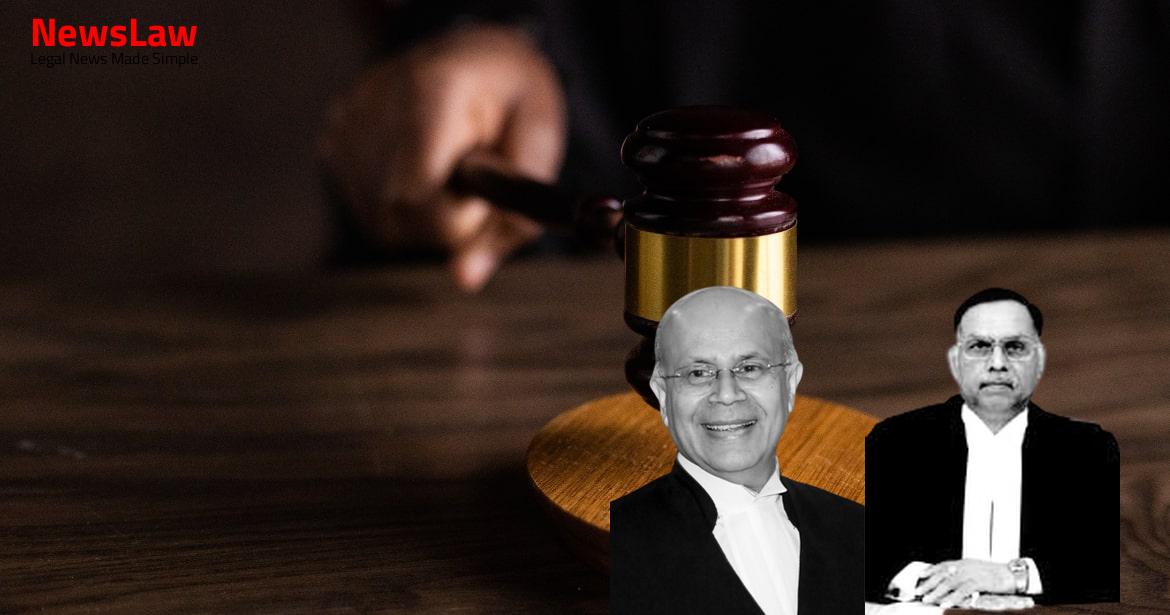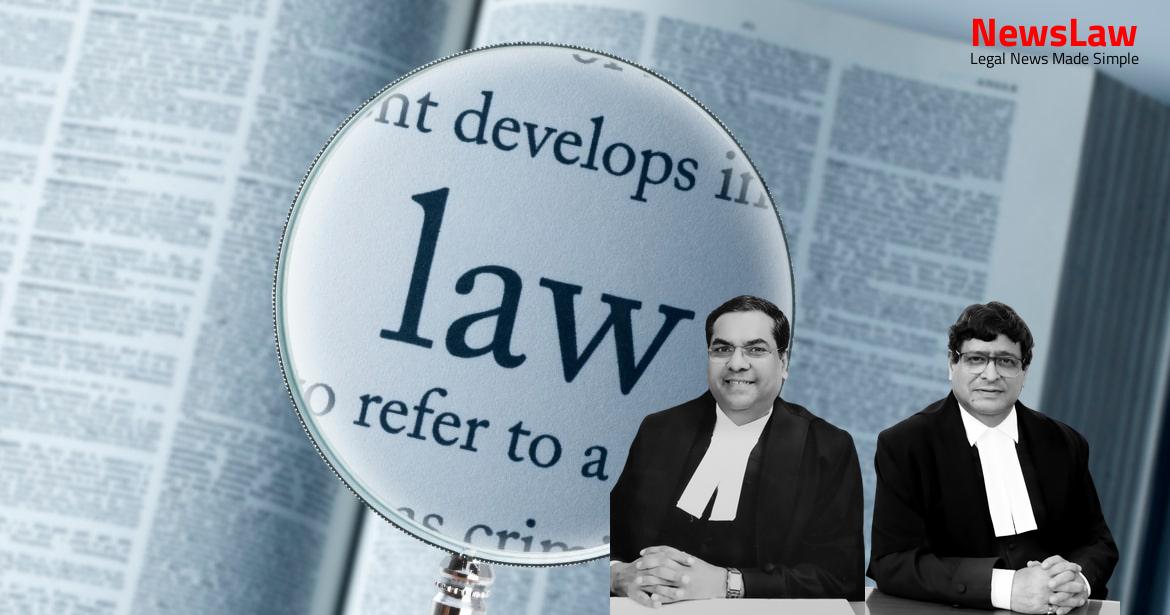In a significant ruling by the Supreme Court of India, a case concerning judicial standards and compulsory retirement was thoroughly examined. The judgment delves into the evaluation of service records, integrity issues, and the application of legal precedents. Stay informed about the latest legal developments with this insightful update. #LegalCase #SupremeCourt #JudicialStandards #CompulsoryRetirement
Facts
- The appellant accepted the order of punishment without any challenge
- A censure entry was recorded in the appellant’s character roll on 20.12.2012
- Appellant was granted compulsory retirement on 03.05.2016 at the age of 56 under Rule 56 (C) of the U.P. Fundamental Rules
- The appellant, while serving as Chief Judicial Magistrate, acquitted the accused in a criminal case on 17.09.2007
- Enquiry report dated 10.05.2012 was adverse to the appellant
- A complaint was lodged against the appellant regarding the acquittal
- Vigilance enquiry V.B. Enquiry No.26/2009 was conducted by the OSD, Enquiry, High Court of Allahabad
- The Full Court scrutinised the service records of the appellant before arriving at the conclusion to compulsory retire him, deeming it in public interest.
- The complaint against the appellant for granting acquittal was examined at multiple levels before the decision to compulsory retire him was made.
- The adverse remarks for the year 1996-97 were not expunged as the explanation provided by the appellant was deemed unsatisfactory.
- A committee of three Hon’ble Judges recommended the compulsory retirement of the appellant which was endorsed by the Full Court, leading to the impugned order.
- The challenge to the retirement order before the High Court was unsuccessful, prompting the present appeal.
- The ACRs of the appellant were reviewed by the Screening Committee and the Full Court, indicating inadequate disposal of work in several years.
- The conclusion of the appellant losing utility and efficiency as a judicial officer was deemed unsustainable without proper consideration of ACRs in recent years.
- Merely making an error in judgment in a criminal case was not sufficient to infer dishonesty, and the promotion subsequent to the incident was deemed irrelevant.
- A vigilance enquiry initiated against the appellant was dropped, and the order of compulsory retirement was criticized for lack of a departmental enquiry.
- The punishment of censure was deemed irrelevant for the purpose of compulsory retirement, especially considering the appellant’s subsequent promotion and confirmed position as Additional District and Sessions Judge.
- The appellant’s service record, including crossing the efficiency bar and adequate percentage of work, was thoroughly considered by the Screening Committee and the Full Court.
Also Read: Justice Served: Acquittal Upheld in Pradhan v. State
Arguments
- Counsel for the petitioner argued that ACRs till 2014-15 certify integrity of the appellant
- Censure entry against the petitioner has not been expunged despite not being challenged
- Single censure entry can be considered by Screening Committee and Full Court, even without challenge
- Petitioner’s arguments regarding integrity censure entry not valid
- Expositions of law cited by petitioner’s counsel not helpful
- Expositions of law cited by respondent’s counsel applicable to the case
- Service records examined by Screening Committee, Full Court, and Division Bench of the High Court
- Scope of judicial review on compulsory retirement order is narrow, only interference on specific grounds
Also Read: Land Dispute Assault Case: High Court Sets Aside Acquittal Order
Analysis
- Judicial service is a public trust and judges hold the office with strict standards.
- Assessments of the appellant’s performance consistently rated as ‘fair’ or ‘good’.
- Compulsory retirement can be warranted for errors in judgment as per established cases.
- Principles of natural justice do not apply in cases of compulsory retirement for judicial officers.
- Judicial officers are held to a higher standard given their role in serving the state.
- Vigilance enquiry by a judicial officer found the appellant’s acquittal questionable.
- The State Judicial Academies play a crucial role in maintaining integrity in the judiciary.
- Judges are expected to exhibit irreproachable conduct due to their critical role in the justice system.
- A vigilance enquiry was recommended by the Administrative Judge due to unsatisfactory explanations.
- Compulsory retirement decisions consider the entire service record, even if adverse entries were not communicated.
- A single adverse entry related to integrity can justify compulsory retirement.
- The court cannot act as an appellate authority in reviewing compulsory retirement decisions.
- Perceptions of injustice at the lower judiciary level can have far-reaching societal impacts.
- Certification of integrity on occasions does not negate the possibility of compulsory retirement.
- Dispensing justice is a solemn duty that should be approached with utmost seriousness.
- One adverse entry can be sufficient for compulsory retirement as per legal precedents.
- Judicial review only to ensure correct process, not decision itself
- Compulsory retirement of judicial officer not interfered if in public interest
- Integrity, independence, and moral values crucial for judicial officers
- Compulsory retirement not considered a punishment in this case
- Committee of Judges evaluates judicial officer’s case before decision
- Assessment of judicial officer’s conduct not to be questioned in court
- Judicial officers held to high standards of probity and integrity
- Existing system of judicial officer ACRs noted to have deficiencies
- Decisions on judicial officer matters made after due deliberation by Full Court
- Judicial review of Full Court’s assessment of a judicial officer to be cautious
- The judicial order of compulsory retirement of the appellant was thoroughly reviewed
- The opinion of the court was that the order did not warrant interference
- The decision was made based on legal analysis and interpretation
Also Read: Land Sale Dispute Resolution: Supreme Court’s Judgment
Decision
- The RPC’s argument that the lower court erred in its application of the law was not accepted.
- The RPC’s challenge to the lower court’s findings regarding evidence was dismissed.
- The RPC’s request for a review of the lower court’s decision was denied.
Case Title: RAM MURTI YADAV Vs. THE STATE OF UTTAR PRADESH
Case Number: C.A. No.-008875-008875 / 2019



